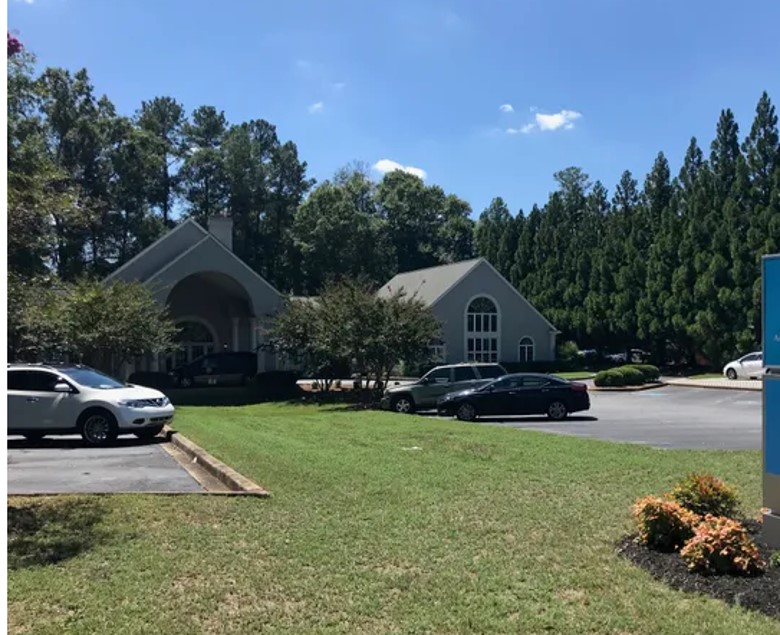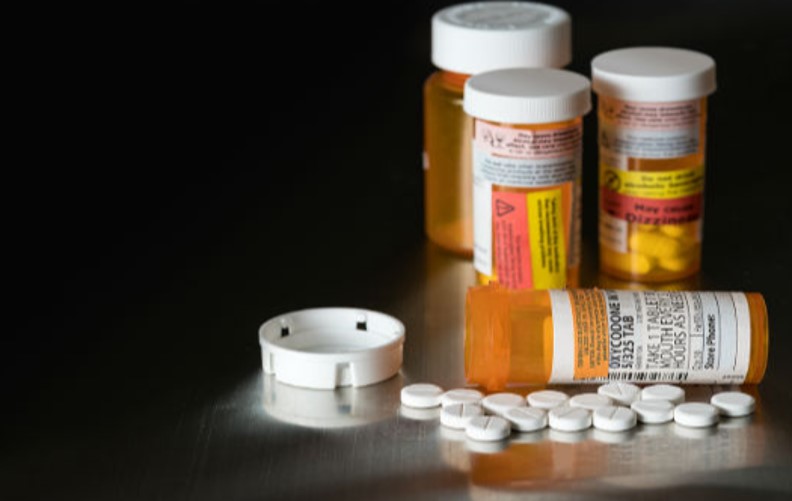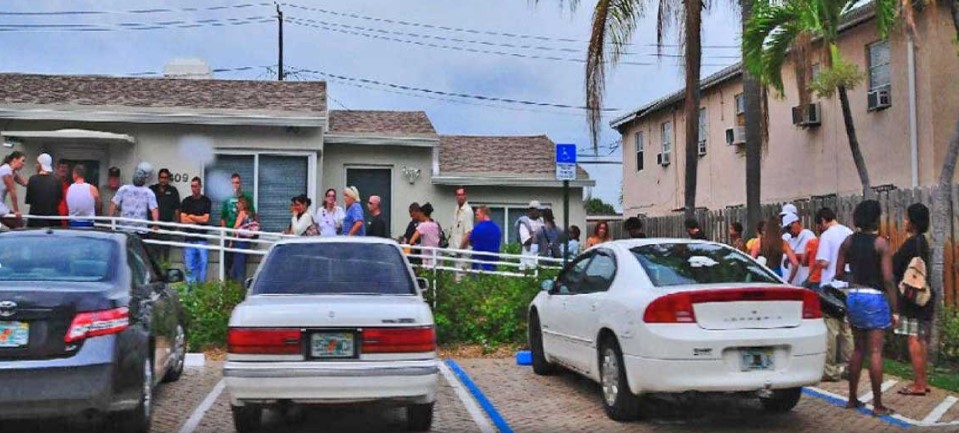
North Carolina and South Carolina Agencies are zeroing in on doctors and pain clinic owners who operate what is known as a pill mill, a medical center in which physicians over-prescribe opioid pain pills for a profit.
North Carolina Doctor Convicted for Operating a Pill Mill (Drug Enforcement Agency, June 2023)
TABOR CITY, NORTH CAROLINA. Dr. John Whan Kim was forced to resign from a clinic in March of 2017 for concerns over his prescribing practices around opioids. In October of that same year, he established his own clinic in Tabor City. There, he prescribed controlled substances to anyone who would pay him $200 cash.
Dr. Kim’s clinic was located just steps from Tabor City Elementary School. Patients seeking controlled substances often loitered near the school, which created safety concerns. As the Fourth Circuit noted, the school was forced to cancel recess due to activity at Dr. Kim’s clinic, and the school was locked down more than once.
Word spread of Dr. Kim’s pill mill and patients came from across North Carolina and other states to get prescription drugs, according to the U.S. Department of Justice.
“The investigation revealed that Dr. Kim often failed to meet the basic standards of legitimate medical care,” federal officials wrote in a press release.
“Dr. Kim wrote controlled substance prescriptions to virtually every patient he saw, often despite not having a patient’s prior medical records, not conducting a real physical examination or considering alternative treatments, and often despite having evidence of patient misuse and diversion.”
In 2018, a federal informant started purchasing drugs from Dr. Kim and recording audio and video. Federal officials gathered enough evidence to execute a search warrant at Dr. Kim’s clinic, and investigators arrested Kim shortly after.
Dr. Kim handed out nearly 2 million doses of addictive prescription medications without giving proper medical care, according to Robert Murphy, special agent in charge of the Drug Enforcement Agency’s Atlanta Field Division.
Dr. Kim was also required to give up all his medical licenses and is banned from ever practicing medicine again, according to federal court documents.
On December 8, 2021, Dr. Kim, 76, pled guilty to conspiring with his Office Assistant, Tammy Thompson, to unlawfully dispense and distribute oxycodone, hydrocodone, methadone, and marijuana in violation of 21 U.S.C. § 846; to multiple counts of unlawful dispensing and distribution of oxycodone, in violation of 21 U.S.C. § 841; and to distribution of marijuana and aiding and abetting, in violation of 21 U.S.C. § 841(a)(1) & 18 U.S.C. § 2. The district court sentenced Dr. Kim to 78 months in prison.
He wrote controlled substance prescriptions to virtually every patient he saw, often in the face of evidence of patient misuse and diversion. A confidential informant obtained opioid prescriptions from Dr. Kim on twelve occasions. On one occasion, he obtained marijuana from Kim’s office manager. At the same time, he obtained a prescription from Kim and paid Dr. Kim for the marijuana. On another occasion, Kim wrote the informant a prescription after the CI asked for a higher dosage so he could sell more pills on the street. On a third occasion, the office manager told the CI, in Dr. Kim’s presence, that Kim was willing to trade work for prescriptions. In total, Kim dispensed more than two million doses of addictive prescription medications.
In affirming Kim’s conviction and sentence, the Fourth Circuit wrote that a “mountain of circumstantial evidence le[ft] little doubt” that Kim subjectively intended to prescribe opioids and other controlled substances outside the bounds of legitimate medical practice.
“Kim abused his trust and authority as a physician by writing illegitimate prescriptions for opioids and other controlled substances, and in doing so, placed his patients and children at a local elementary school at risk,” said U.S. Attorney Michael Easley.
“The Fourth Circuit’s ruling reaffirms that doctors may not abuse their authority to write prescriptions for controlled substances by knowingly issuing prescriptions outside the scope of legitimate medical practice. Our commitment to prosecuting physicians and other prescribers who operate pill mills in Eastern North Carolina remains steadfast.”
North Carolina State Bureau of Investigation.
What Are Pill Mills?
Pill mills are places where people can get prescription drugs without a legitimate medical reason. In most cases, pill mills are run by doctors or other healthcare professionals who prescribe drugs like opioids for cash. These prescriptions are often given without any medical exam or testing, and they’re usually offered in large quantities. Pill mills fuel the opioid epidemic by making it easy for people to get their hands on these dangerous drugs.
Often, these operations are in rural areas or small towns without many healthcare options. This means that people have to travel long distances to get to a pill mill, making it even easier for them to become addicted to the drugs they’re prescribed.
Pill mills are often located in storefronts or strip malls and usually don’t have any medical equipment on site. In some cases, people who work at pill mills may even dress like they’re not in a medical setting. This can make it difficult for people to know if they’re going to a legitimate doctor’s office or a pill mill.
Example of a Pill Mill Operation in Georgia
Pill Mill Operation (WXIA, YouTube Video)
Undercover investigation of Pain Management Clinic. Dr. Michael Stanley Johnston, Georgia Health Associates, was shut down shortly after.
If you recognize any of these signs, you can submit your anonymous tip through the DEA online Tip Line and report the doctors or facility.
PEMBROKE, NORTH CAROLINA— Dr. Donovan Dave Dixon, 51, operated a Family Medical Practice at 812 Candy Park. He was sentenced to 240 months in prison after being convicted of conspiracy to unlawfully distribute oxycodone and 20 counts of Unlawful Distribution of Oxycodone outside the scope of professional practice and not for a legitimate medical purpose. Dixon was a licensed medical doctor at the time of the offenses.
Dixon graduated from Rush Medical College in 1998 and completed his residency in family medicine at the University of Medicine and Dentistry in Newark, N.J., in 2001, according to a website for his medical family practice.
Four years later, Dixon completed an obstetrics and gynecology residency at New York Methodist Hospital, then served in 2007 as part of the faculty training future physicians and medics for the United States Army.
The evidence at trial showed that DIXON operated his medical practice in Pembroke, NC, from 2012 until April 6, 2015, when his ability to prescribe controlled substances was limited by the North Carolina Medical Board.
The Drug Enforcement Administration’s Tactical Diversion Squad, based in Charlotte, began investigating DIXON when they noticed that four of the top ten oxycodone prescribing pharmacies for the State of North Carolina were located in the Lumberton, NC, area. The local pharmacists, as well as local and state law enforcement, identified DIXON as the likely cause.
At trial, the evidence showed that DIXON prescribed high-strength, high-dosage amounts of oxycodone with little or no medical examination. Multiple witnesses testified that they had never even met DIXON despite the fact that hundreds of prescriptions had been issued in their name. A local drug dealer testified that DIXON wrote prescriptions for oxycodone in the name of persons that he provided to DIXON in exchange for cash. The prescription drugs were then sold on the streets of Robeson County by the drug dealer.
Mr. Higdon stated: “The United States Department of Justice is aggressively moving against all individuals who illegally distribute opioids and prescription drugs. Whether those illegally pushing these drugs are on the street or operating from a doctor’s office, we will pursue you, charge you, and convict you for the crimes that are putting our citizens at risk.”
Drug Enforcement Administration’s Diversion Control Division (www.deadiversion.usdoj.gov),
North Carolina Medical Board (www.ncmedboard.org)
North Carolina Board of Pharmacy (www.ncbop.org)
DILLON, SOUTH CAROLINA. Med First Immediate Care & Family Practice, P.A. (Med First) has agreed to pay the government $1,450,000 to resolve False Claims Act allegations that its clinic in Dillon, South Carolina, had been operating as a pill mill and falsely filing claims to Medicare and Medicaid for medically unnecessary urine drug testing (UDT), as well as lengthy and complex office visits that were not performed, announced U.S. Attorney Sandra J. Hairston.

An Easley-based pain treatment clinic with offices across the Upstate was at the center of three federal lawsuits that allege the practices prescribed opioids to patients who didn’t need them and defrauded the federal government.
The clinic, Pain Management Associates, has offices in Anderson, Greenville, Easley, Spartanburg, Columbia, Florence, Myrtle Beach, Sumter, Arden, and Waynesville, North Carolina, according to its website. It’s named in all three of the civil suits, while its alias, Oaktree Medical Centre, and owner, Daniel McCollum, are listed as defendants in two of the cases.
One of the suits, filed by a former employee in October 2018, alleges that Pain Management Associates’ medical practitioners “liberally dispense addictive opioids to patients without proper evaluation of medical necessity.”
The suit adds that patient evaluations at the clinics “last no more than a few minutes” but are billed “as if they were thorough evaluations lasting between 15 to 20 minutes.”
Another of the suits, filed by former employees in April 2015, alleges that physicians at the clinics were compensated when they referred patients to businesses affiliated with the practice and its owner, Daniel McCollum and that they did so “repeatedly and regularly.”
McCollum also owns the clinical testing lab that handled urine drug screens, LabSource, and the pharmacy that provided some of the prescription drugs to patients, Exigo, alleges the third suit, filed by a former employee in May 2017.
Feds Due Local Pain Management Clinic Owner (Anne Maxwell, 7News WSPA, June 2019)
Federal attorneys accused South Carolina chiropractor Daniel McCollum of “design[ing] and execut[ing] a series of elaborate and extensive fraud schemes to maximize profits at his pain clinics. McCollum owns local pain management clinics Pain Management Associates (PMA), its parent company, Oaktree Medical Centre, and laboratory Labsource, which are defendants in the suit. McCollum referred to his PMA clinics in Easley and Sklyn, S.C. as “pill mills,” according to the suit.
The alleged scheme incentivized doctors to prescribe opioids. Doctors frequently drug test patients on opioids to make sure they are not abusing their medication.
According to the lawsuit, PMA’s arrangement was illegal because doctors’ pay and McCollum’s profits were tied to the volume of their drug testing referrals.

DHEC: Easley Doctor Faced 29 Charges for Illegally Prescribing Drugs (WSPA Staff, May 2019)
EASLEY, SOUTH CAROLINA. Dr. Dwight Jacobus, 71, Medical Director, Pain Management Associates, was arrested and charged with 29 drug-related crimes. The investigation centered around prescriptions, records from the clinic, and witness statements.
According to the warrants, the crimes happened between April 16, 2018, and November 14, 2018, at the Foothills Bariatric and Wellness Center on Calhoun Memorial Highway in Easley.
In two cases, warrants allege Dr. Jacobus gave out prescriptions without documenting them, as the law requires. In at least one case, Jacobus gave out prescriptions to someone who was not listed as a patient.
According to ProPublica, Dr. Jacobus ranked among the state’s top oxycodone prescribers with more than 1,400 Medicare claims.
The suit says Dr. Jacobus, like other doctors there, earned bonuses based on referrals for urine drug testing to McCollum’s laboratories. It alleges he made nearly $750,000 in bonuses and nearly 9,000 referrals from 2012 through 2016. Jacobus’ referrals resulted in nearly $2.5 million in Medicare payments.
Illegal activities such as doctor shopping are more prevalent across long distances and state borders.
In May 2018, South Carolina implemented limits on the quantity of opioid prescriptions that can be issued by healthcare providers. Chain pharmacies are typically subject to more regulations, while independent retail or mail-order pharmacies may have a greater likelihood of being linked to drug diversion due to their financial incentives and lack of information on patients’ prescription drug use history.
If you are aware of controlled substance violations in your community, you can submit your anonymous tip through the DEA online Tip Line.
More than 1.8 million pain pills were distributed throughout South Carolina from 2006 to 2012. South Carolina distributed 58 pills per person per year from 2006 to 2012. Within the state, Charleston County distributed more than 200 opioids per person on average.
Horry County received 6% of the state’s opioids, an amount equivalent to around 54 pills per person each year. Cardinal Health, CVS, and Walmart distributed more than 50% of the pain pills throughout Horry County.
While around 40 million less opioids were distributed in Florence County, the number per population was higher at 63 pills per person.
Georgetown, Marion and Marlboro County accounted for 1% of the state’s total pain pill concentration.
The top pharmacies to supply the prescriptions were Walgreens and Walmart in Conway, Walgreens in Murrells Inlet, Walmart in Surfside Beach, and the Powers Pharmacy of Loris.
Lawsuits have been filed across the country against pharmaceutical companies for their promotion and sales of opioids that led to addiction.
Horry County’s lawsuit named Johnson & Johnson, Walgreens, Rite-Aid of South Carolina, and CVS Pharmacy as a few of the defendants.
“Overdoses, addiction, hospitalizations, and other negative effects of the opioid epidemic in Plaintiff’s community are ongoing,” court documents state.
Marion and Dillon County are also involved in lawsuits against drug manufacturing companies.
More than 1,000 people died of an overdose in South Carolina in 2017, according to the state’s Department of Health and Environmental Control (DHEC).
The number of overdoses caused by opioids decreased in Horry, Georgetown, Marion, and Marlboro County from 2016 to 2017. However, in Florence County and across the state, the number of deaths increased.

Understanding Drug Overdoses and Deaths (Centers for Disease Control and Prevention)
Researchers from the Centers for Disease Control and Prevention report that Schedule II prescription painkillers, like oxycodone, cause more drug overdose deaths than cocaine and heroin combined. Oxycodone and other Schedule II drugs have a high potential for abuse and can be crushed and snorted or dissolved and injected to get an immediate high. This abuse can lead to addiction, overdose, and sometimes death.
What is Oxycodone and How Is It Used (United States Drug Enforcement Administration)

The opioid crisis and drug overdoses continue to devastate our states and local communities.
Donations to Support this Website are Always Welcome
If you recognize any of these signs, you can submit your anonymous tip through the DEA online Tip Line and report the doctors or facility. Pill mills are a problem. If the citizens of the community report they see signs of suspicious activity and more businesses keep an eye out for the above-mentioned signs as well, hopefully, these pill mills can be limited.
Pill Mill Enforcement
While states are seeking a way to cut off the supply from the top of the chain, the federal government continues to arrest and prosecute physicians and pill mills that provide patients with prescriptions for opioids that are not medically necessary and that then flood the country’s streets.
Nationwide Investigations
How Pain Doctors Massive Opioid Prescriptions Lead to Pain Pill Overdose Deaths
How Pain Clinic Owners Turned Patients’ Pain into Enormous Profits
How State and Federal Authorities are Dismantling Pill Mills in the United States
How to Recognize a Pain Pill Mill in Your Community
Authorities Crack Down on Pharmacists Fulfilling and Dispensing Massive Amounts of Pain Pills
How Authorities Have Shuttered Georgia Pain Clinics Massive Pain Pill Distribution
How Federal Agencies Are Dismantling New York Pain Clinics Vast Pain Pill Operations
How Federal Agencies are Shutting Down Maryland Pain Clinics Operating as Pill Mills
How Authorities Are Cracking Down on Virginia Pain Clinics Massive Pain Killer Pill Operations
How Authorities Are Shutting Down Texas Pain Clinics Enormous Pill Prescriptions
How Authorities Are Cracking Down on Rogue Pain Clinics in Florida

What Are Some Signs There Is a Pill Mill in Your Area?
Pill mills have been around in almost every one of the United States. Many are found in the Southern States. However, there are still pill mills opening up around the country. If you suspect there is a pill mill in your area, some signs to confirm this may include the following:
- Cash is the only form of payment accepted.
- Physical exams are not given.
- Prescription pills are the only way doctors treat pain.
- Crowds are formed around the building in lines.
- Many cars are in and out of the building parking lot.
- Pharmacists complain about the doctors.
- Other businesses complain about the office or facility.
- Patients aren’t in the building long for their appointments.
- Shady or unusual characters around the building.
- X-rays and medical records aren’t needed for appointments.
- Doctors send patients to a specific pharmacy.
- Drugs are being used and sold right outside the building.
- Security guards are on the premises.
If you recognize any of these signs, you can submit your anonymous tip through the DEA online Tip Line and report the doctors or medical facility.
How State and Federal Authorities Are Busting Pill Mills in North Carolina & South Carolina
ADD COMMENTS BELOW
- Ways to Pay It Forward and Change Lives
- Balancing Success: Practical Self-Care Strategies for Entrepreneurs
- Email Marketing Campaigns for Small Business Owners
- How to Create an Ergonomic Workspace at Home or Work
- Backpacking, Hiking, and Camping Safety Guides
- Guides to Backpacking, Mountain Biking and Hiking Georgia
- Moving and Relocating to Atlanta: How to Find Your New Home
- Money Matters: Insider Tips to Buying a Home
- Renting vs Owning a Home
- Ways to Build Positive Credit
- Do It Yourself Credit Improvement Process
- A Trail of Clues to the Murder of Nicole Brown Simpson
- How Centra Tech’s Bitcoin Cryptocurrency Scheme Was Hatched and Discovered
- Starting a New Business as a New Mother: Tips for Thriving
- Guides to Backpacking and Hiking the Carolinas
- Guides to Hiking New York State and New Jersey
- Guides to Backpacking and Hiking Canada
- Guides to Hiking California and Nevada
- The Tragic Murder of Rebecca Postle Bliefnick
- How a Grad Student Murder Spotlights Female Joggers’ Safety Concerns
- How Massive Commercial Financial Fraud Was Discovered in Singapore
- Guide to Martha Stewart’s Hugely Successful Concept and Art of Presentation
- Did Billy Ray Turner Conspire with Sherra Wright to Kill Former NBA Player Lorenzen Wright?
- How Operation Rebound’s 7-Year Cold Case was Finally Solved
- Stylish Outdoor Fire Pits and Patio Heaters
- Mastering DIY Marketing: Essential Skills and Strategies for Small Business Owners
- Great Deals on Snug UGG All-Season Boots
- How a GeoLocation Expert Tracked a Killer
- Transgender Law Enforcement Officer Denied Medical Coverage for Gender Dysphoria
- How Video Surveillance Cameras Helped Identify and Track a Killer
- How Investigators Solved the Murder Mystery of Army Sergeant Tyrone Hassel III
- How a Love Obsession Led to the Brutal Murder of Anna Lisa Raymundo
- How Stephen Grant Tried to Get Away with Killing His Wife
- How Unrelenting Catfish Schemes Led to Fatal Suicide
- How Pain Clinic Owners Turned Patients’ Pain into Enormous Profits
- How to Recognize a Pain Pill Mill in Your Community
- How Authorities Have Shuttered Georgia Pain Clinics Massive Pain Pill Distributions
- How Pain Doctors Massive Opioid Prescriptions Lead to Pain Pill Overdose Deaths
- How Authorities Are Dismantling Pennsylvania Pain Clinics Prescribing Excessive Amounts of Opioid Pain Pills
- How Authorities Are Dismantling Alabama Pain Clinics Pain Pill Schemes
- How the Gilgo Beach Homicide Investigation Has Progressed
- How NYC Architect was Linked to Three Women’s Remains Found on Gilgo Beach
- How Investigators Discovered a Serial Killer Hiding in Plain Sight
- How Police Discovered the Concealed Murders of the Chen Family
- How a Vicious Child Custody Battle Led to the Murder of Christine Belford
- How Authorities Finally Captured a Serial Killer in Southern Louisiana
- How Authorities Are Busting Pill Mills in The Carolinas
- Unsolved Mystery: Triple Murder at the Blue Ridge Savings Bank
- How Montgomery County Police Quickly Unraveled the Murder of a Retail Store Employee in Bethesda
- How a Child Rapist and Murderer Almost Got Away with His Crimes in England
- How Authorities Are Dismantling Pill Mills in the United States
- How Federal Agencies Are Dismantling Michigan Pain Clinic Doctors Scheme to Distribute Enormous Amounts of Opioid Pain Pills
- How Authorities Are Cracking Down on Virginia Pain Clinics Massive Pain Pill Operations
- How Authorities Are Honing in on Kentucky Pain Clinics Distributing Opioid Painkiller Pills for Profit
- How Federal Agencies Are Shutting Down Maryland Pain Clinics Operating as Pill Mills
- How Federal Agencies Are Dismantling New York Pain Clinics Vast Pain Pill Operations
- How the Senseless Murder of Tequila Suter Was Quickly Solved
- How Authorities Are Dismantling Ohio Pain Clinics Prescribing Excessive Pain Pills
- How Authorities are Dismantling Tennessee Pain Clinics Prescribing Massive Quantities of Opioid Pain Pills
- How State and Federal Agencies Are Shuttering California Pain Clinics Huge Distribution of Opioid Pain Pills
- How Authorities Are Shutting Down Texas Pain Clinics Enormous Pill Prescriptions
- How Authorities Are Cracking Down on Rogue Pain Clinics in Florida
- George Brothers Used Pain Clinics to Disburse Oxycodone Pain Killer Pills
- How Authorities Have Convicted Pharmacists Fulfilling and Dispensing Massive Amounts of Pain Pills
- Timeline of Events Leading to Rudy Giuliani’s Legal Troubles
- Georgia Election Workers Defamation Lawsuit and Trial
- Rudy Giuliani’s Election Fraud Allegations and Ensuing Lawsuits
- British Singer George Michael’s Last Christmas
- Shaping Tomorrow’s Leaders
- Kathleen Peterson’s Mysterious Staircase Death: Accident or Homicide?
- How Police Officer Stephanie Lazarus Almost Got Away with Murder
- Mysterious Staircase Death Investigations
- Elizabeth Ratliff’s Mysterious Staircase Death in Germany
- The Death of Vincent Foster Remains a Mystery 30 Years Later
- Biloxi Murder Conspiracy: A High-Stakes Crime